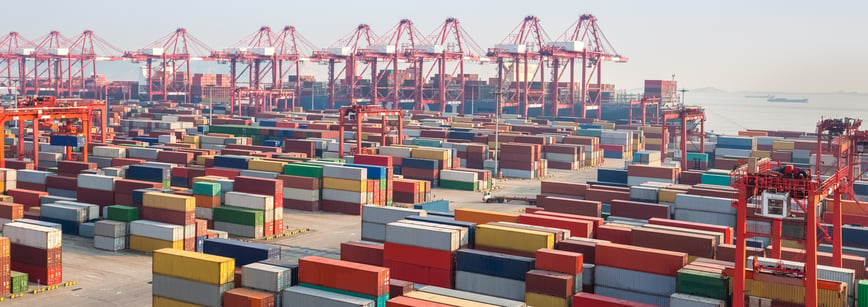
As anyone working in the logistics and shipping industry knows, the major barriers to importing goods into the United States include duties, taxes, tariffs, and complying with certain government regulations. Luckily, there are ways that businesses can overcome these obstacles and stay competitive and compliant in the global marketplace.
By taking advantage of Foreign Trade Zone (FTZ) procedures, importers and exporters of any size could see significant benefits such as increased cash flow and mitigation of regulatory compliance risks.
What Is a Foreign Trade Zone?
An FTZ is an area within the United States where foreign and domestic merchandise is considered “international commerce” and technically outside of the U.S. Customs territory. One of the key advantages of an FTZ is that a formal entry is not required for foreign or domestic goods at the time of admission into the zone.
An FTZ also allows manufacturers to comingle and assemble products using both foreign and domestic components within the zone. While these are the basics of how an FTZ operates, perhaps even more important are the financial benefits for importers and exporters.
Deferral of Duties & Taxes
Normally, when a shipment arrives at a port within the U.S., it is subject to the applicable duties and taxes within days of receipt. By using an FTZ, businesses are allowed to defer duty payments until the merchandise is withdrawn for consumption to the U.S. In states where inventory or internal revenue taxes are applicable, the local fees are deferred as well, permitting companies to hold on to more of their cash upfront.
It is also permissible to move goods in-bond or via zone-to-zone transfer without the payment of duty. There are no payments due until the merchandise is transferred out of the zone and into the consumer marketplace.
Inverted Tariffs & Duty Reduction
When the manufacturing process in an FTZ results in a finished product with a duty rate lower than that of its foreign components, the finished product may be entered at the lesser duty rate, which applies to its condition as it leaves the zone. Alternatively, if the duty rate on the components is lesser than the finished product, then the goods could be entered using the rate of the components. Additionally, duty would not be owed on the labor, overhead, or profit attributed to zone production operations.
In certain scenarios, it is possible the item may even become duty-free in its final form, and the tariffs could be avoided altogether, which would eliminate many of the costs associated with the importation of the components used during the manufacturing process. For these reasons, tariffs in FTZs are much less punitive and cumbersome, which can provide manufacturers with significant savings.
Duty Exemption
When businesses import with the intent to re-export their products to foreign markets, the merchandise is not subject to duties, taxes, or quotas – with the exception of exports to Canada or Mexico under USMCA of goods manufactured in the FTZ.
By using an FTZ, the company avoids having to go through reconciliation or duty drawback processes down the line since no payments were made in the first place.
Furthermore, companies are exempt from paying duties on goods destroyed in the zone. This would be of particular interest to importers of fragile goods or those with manufacturing processes that create substantial amounts of scrap by-products.
Could Your Company Benefit from an FTZ?
Absolutely! From importers and exporters to manufacturing companies – many can benefit from using a Foreign Trade Zone. Using an FTZ is proven to be advantageous in terms of saving money and lessening the impact of U.S. Customs restrictions. This is a program that creates a more competitive marketplace globally and encourages foreign commerce in the United States by offering a unique set of perquisites.
Contact Arcelio Gerardo at FTZ World Services for a consultation regarding potential benefits for your business in a Foreign Trade Zone! Reach out at: (305)481-2467 or arcelio_gerardo@ftzworld.com




